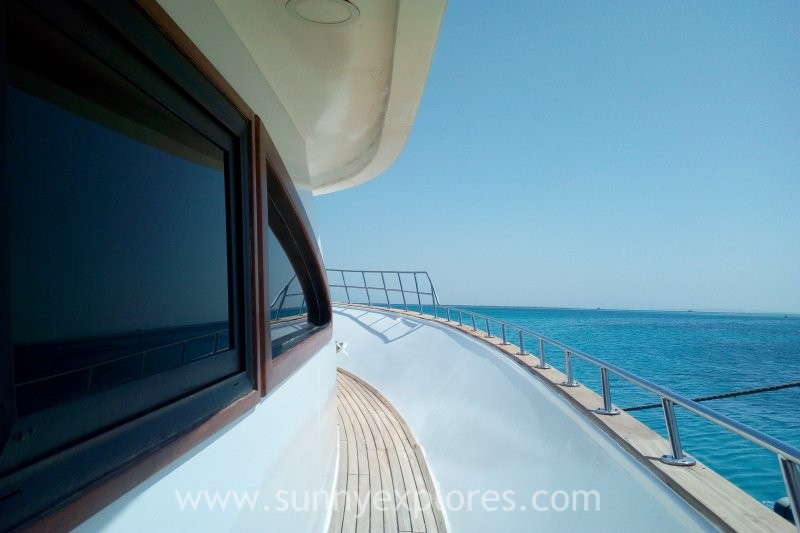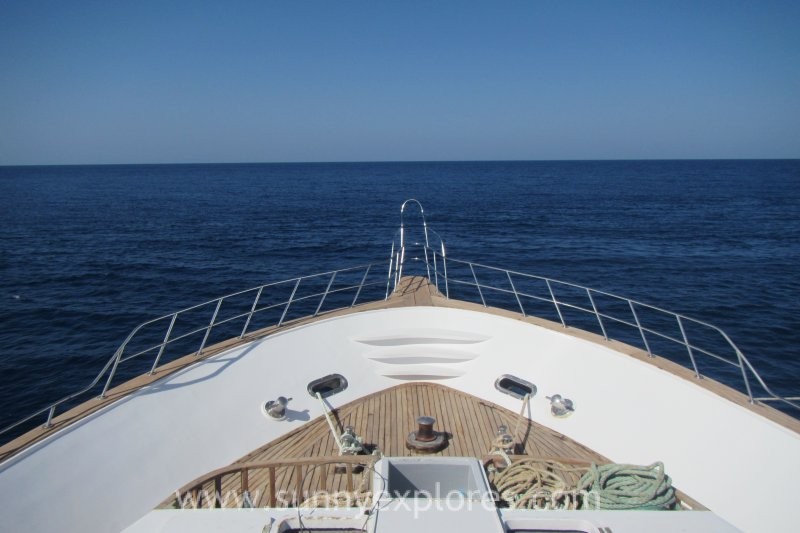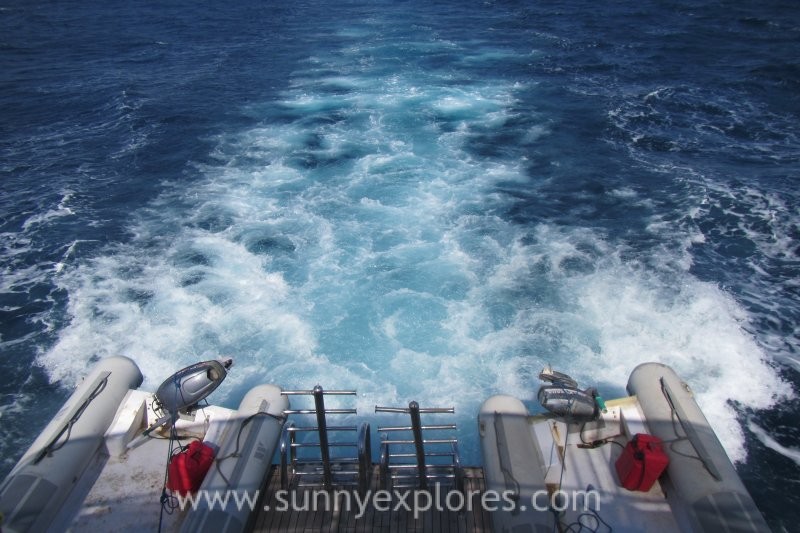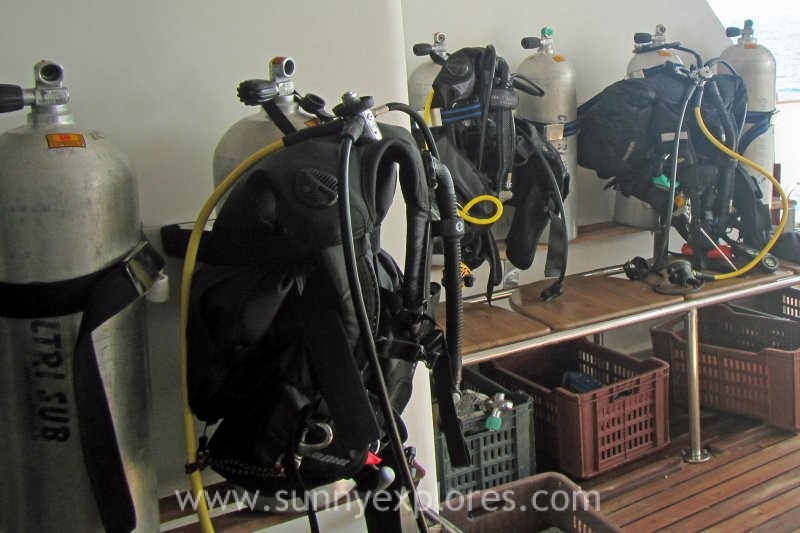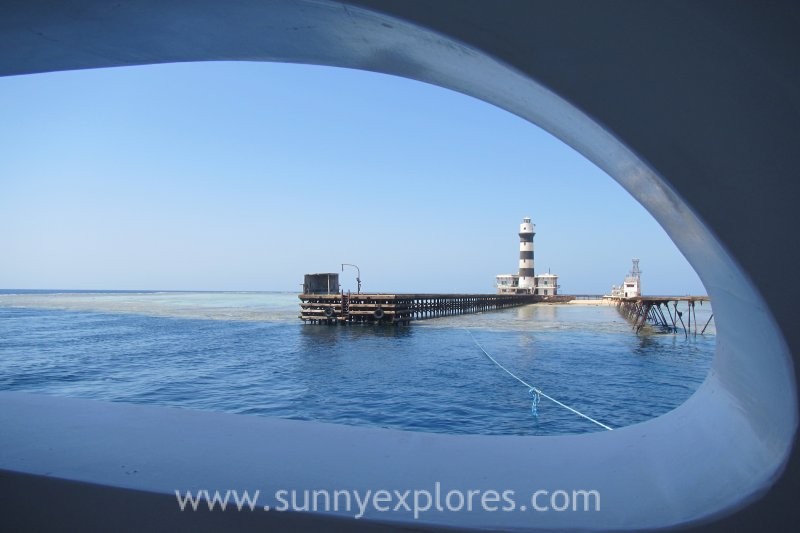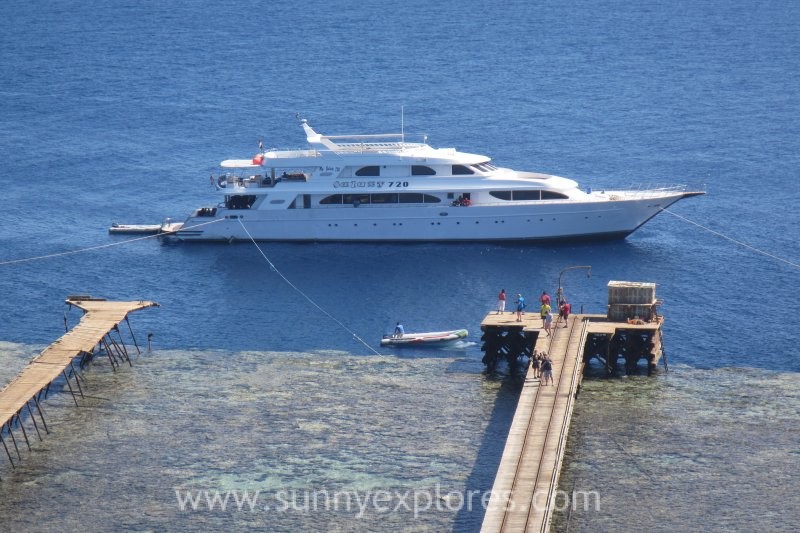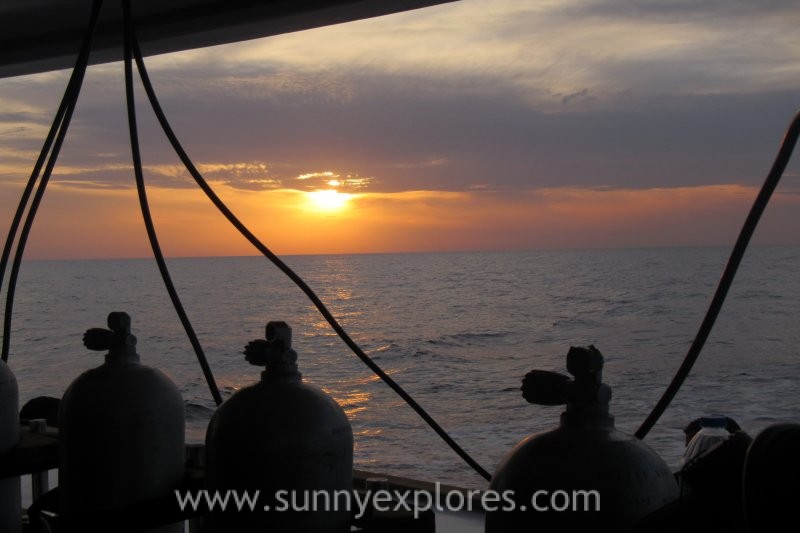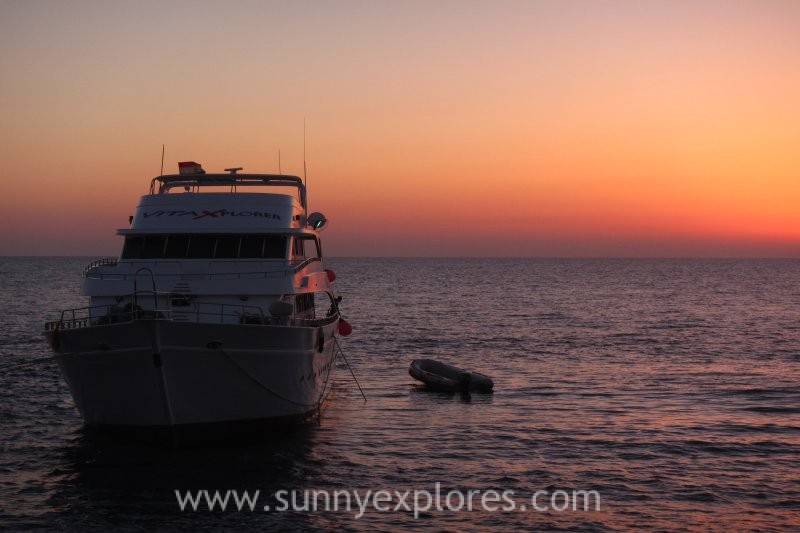Tips for embarking on a diving live aboard
April 13, 2017
A live aboard is the ultimate way to live the divers dream of dive-eat-sleep-repeat. You will have maximum under water time and good diving conversations during your surface interval. It’s a great way of traveling, but don’t join a live aboard without preparing. You have to realize it’s also hard work with a daily schedule of 6:00 wake up, 6:30 first briefing, dive, breakfast, briefing, dive, lunch, briefing, dive, dinner, optional night dive and then going to bed. It’s amazing and at the same time intensive and exhausting when you are not in a good physical shape.
Here are ten tips to keep in mind before you board.
1. Take time to acclimatize
Arrive early to allow your body to acclimatize to time change and to sleep off some of the jet lag. Arriving early makes you more relaxed on a moving boat, and it makes you less prone to discomfort as seasickness.
2. Take motion sickness medication
Take motion sickness medication, just in case. Don’t think it can’t happen to you. You never know the sea conditions and you never know how your body might react. A live aboard provides a whole different motion environment. Motion sickness meds are a good precaution until you feel more comfortable in your new moving surroundings.
3. Test your equipment before you go
You are on a live aboard, so remember there are no dive shops around. You need to bring all you need and you need to bring back ups. And my last trip on MY Galaxy I learned to bring a backup for my backup. Photographers should pack backup fiber-optic cables and strobe connectors, and a backup SD card and hard drive, just in case.
4. Pack light, but bring the essentials
You don’t need much clothes on a live aboard, but you need some warm ones. To save luggage space, wear the heavy stuff traveling to the boat: a sweater, a pair of long pants, a pair of shoes and a light jacket. Wearing the heavy clothes saves room for the essentials: sea sickness meds (be proactive about taking them, because when it’s too late, it’s too late), sunscreen, two or three swimsuits (so you’ll always have a dry one), surface marker buoy and surface signaling devices (whistle, shaker), a spare mask, film and batteries for cameras and dive lights, a rechargable flashlight. I can’t emphasize it enough: bring something warm. The more you dive, the colder you get. For me, doing multiple dives a day means getting cold to the verge of hypothermia, yes even in tropical waters. Being mindful of your internal body temperature and get completely dry and changs between dives. Your core temp will warm up faster, and you will probably stay warmer during the next dives.
5. Manage your expectations
I saw this lesson illustrated during my trip with MY Galaxy two weeks ago. I travelled the same route as in september 2016, but the conditions and dives couldn’t be more different. 7 months ago I had a grazy shark time in hard conditions with extreme currents and hard winds, last month I encountered a peaceful Red Sea scenary. We didn’t see many sharks either. We are talking about marine life and wild animals who behave accordingly. There are no guaranteed sightings, but the crew will do everything to maximize your chances. Just appreciate what you do see. Also adjust your expectations about the boat trip. Yes, the scenary and sunrises are romantic. The gentle rocking of the boat can be peaceful. But it’s nature and circumstances can be different: you can also encounter rough seas, high waves and rough diving conditions.
6. Be attentive to the crew
The price of a live-aboard cruise includes your diving, food and lodging. However, it usually doesn’t cover tips for the crew that works hard to give you a once-in-a-lifetime-experience. Tips are always an important part of the crew’s income and your cultural customs and geographic location are no excuse not to tip. The crews of liveaboards survive on tips. On MY Galaxy we had an amazing crew. As soon as we prepared for diving the crew was there, assisting us in any way possible. When we came back from our dives, it was just the same. I was very impressed with the zodiac crew. They were alert and attentive. Keeping an eye on everything, the zodiac was there as soon as a diver descended. So be just as attentive to the crew as they are to you. Small gestures mean a lot, so joke around with them, try to speak their language and bring local delicacies and sweets. Tip generously.
7. Be flexible about dive sites
Yes, there is an initiary. Yes, you really wanted to dive that particular site, but be flexible. The captain will select dive sites to suit the interests and abilities of the majority of the group. But unforseen weather conditions may cause a change in the plans. When a captain or dive guide decides to an alternative plan, remind yourself he is doing this for your safety. I’ve been on multiple live aboards, diving, snorkling and cruising and there were always changes in the initiary and always for a valid reason. Captains know how to maximize local conditions to serve up the best spots on any given day, so don’t worry. They will do anything to meet your expectations.
8. Trip insurance
Most live aboards require you to have a travel and accident insurance. Even if they do not, you should have one. Weather, lost dive gear or illness can ruin a trip. Although any of these scenarios is unfortunate, they needn’t be as much of an issue if you have a trip insurance. You can get sick. You can loose your gear and sometimes boats simply can not sail due to weather conditions. There can be political unrest or a vulcano can erupt. If the boat sails and you’re not on it due to a late or cancelled flight, don’t count on getting a refund. Most live-aboard companies have restrictive cancellation policies, because each slot represents such a large percentage of the week’s revenue. So make sure you have a good insurance to cover all possible circumstances.
9. Join DAN
Diver Alert Network (DAN) is an organization that supports diving. It’s their mission to help divers in need of medical emergency assistance and to promote dive safety through research, education, products and diving services. The benefits of DAN membership include emergency medical evacuation assistance through DAN TravelAssist and access to DAN’s insurance services.
10. Enjoy the experience
Don’t overthink or worry to much if you will like it on board, if you will be seasick, if you can get along with the group, if the diving conditions will be hard. Just be present and patient and enjoy what’s unfolding in front of you. You signed up for an new adventure; you might as well enjoy it.
